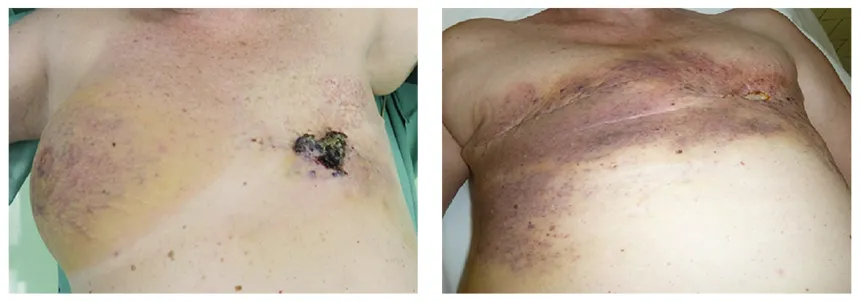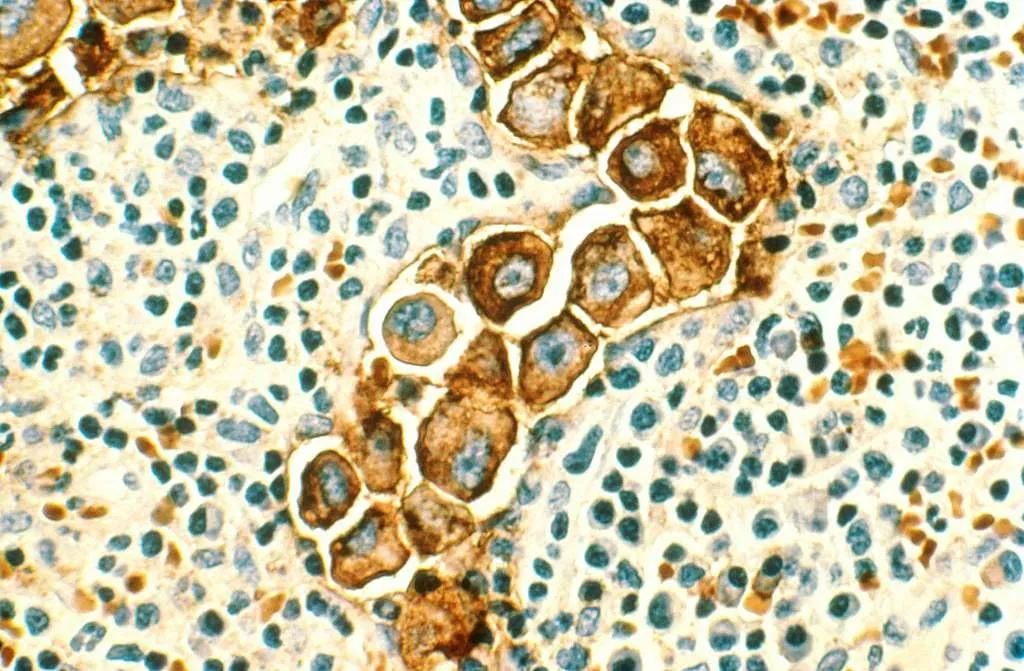Kudos to every mother in the building. You see, being a mother is not an easy task because there is a lot to be invested into it, and a lot of sacrifices to be made like body changes, months of breastfeeding which could change the look of the breast as time goes on, pains from breastfeeding resulting from biting, and so many other things including the risk of cancer, so let's dive into it already.
The risk of cancer can either be increased risk or decreased risk and when it comes to pregnancy, it is the both and in this case, researchers looked at breast cancer. You wonder why this is? When women get pregnant, there is a change in hormone which causes in change in the body, blood flow, and joints. Scientists have now seen that these changes are associated with risk of developing breast cancer in women but also, childbirth has been associated with other cancers like ovarian cancer and endometrial cancer.
In women, the breast becomes bigger at the first trimester which is the first three months of pregnancy, and this is done so as to prepare for feeding the baby. During this period, small ducts are activated which will produce milk for the baby when it comes. For this duct to happen, a lot of changes have to happen in the breast from cells forming capillaries that will feed the duct blood, to cells forming the duct, and cells producing the milk.
Research shows that the breast cancer associated with pregnancy is that which is associated with the production of milk and it is referred to as Estrogen Receptor Positive Breast Cancer and with this, researchers are blaming the hormone estrogen. Scientists also looking at the relationship between prolactin and breast cancer come to a hypothesis that the hormone produced the the period of pregnancy increases the risk of women having cancer and this is because they stimulate the growth of cells that were likely to be cancerous.
These changes in the body goes from pregnancy to even post postpartum period because even when the body stops the breast from producing milk, the process can also create an environment for tumors to grow. According to researcher, the highest point of cancer risk associated with pregnancy is immediately after pregnancy which they refer to as short term peak within the period of about 4 to 5 years. Funny enough, scientist refer to 20 years as the short term return to baseline for breast cancer after childbirth although I do not see anything short in this.
While there is a risk of cancer cells being created during pregnancy, there is also the creation of healthy cells especially in the breast. Cells that are stable and differentiated are less susceptible to cancer which also gives lower risk to women after pregnancy. Researchers believe that by spending more time being pregnant, the cancer risk reduces which also reduces the number of menstrual cycles and exposure to hormones. But this decrease cancer risk tend to exist if the first baby came before the woman is age 35. Breast cancer is reduced by 4% in mothers who breastfeed children for a year or more.
https://www.cancer.org/cancer/types/breast-cancer/about/how-common-is-breast-cancer.html
https://www.ncbi.nlm.nih.gov/pmc/articles/PMC6760671/
https://www.nejm.org/doi/full/10.1056/NEJM199407073310102
https://academic.oup.com/aje/article/152/10/950/55605?login=false
https://www.cancer.gov/about-cancer/causes-prevention/risk/hormones/reproductive-history-fact-sheet
https://www.cancer.org/cancer/types/breast-cancer/treatment/hormone-therapy-for-breast-cancer.html
https://www.komen.org/breast-cancer/diagnosis/factors-that-affect-prognosis/tumor-characteristics
https://www.hopkinsmedicine.org/health/conditions-and-diseases/introduction-to-menopause
https://www.ncbi.nlm.nih.gov/pmc/articles/PMC7791626/
https://www.ncbi.nlm.nih.gov/pmc/articles/PMC3404495/
https://americanpregnancy.org/healthy-pregnancy/changes-in-your-body/breast-changes-during-pregnancy/
https://www.cancer.gov/types/breast/risk-fact-sheet
https://www.cancer.gov/about-cancer/causes-prevention/risk
https://www.urmc.rochester.edu/encyclopedia/content.aspx?contenttypeid=134&contentid=52
https://www.cancer.gov/about-cancer/causes-prevention/risk/age
https://www.komen.org/breast-cancer/risk-factor/age-at-first-childbirth/
https://www.ncbi.nlm.nih.gov/books/NBK559304/

